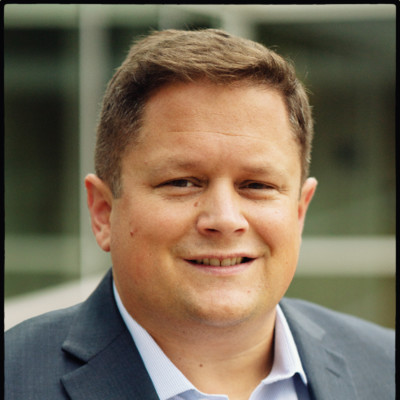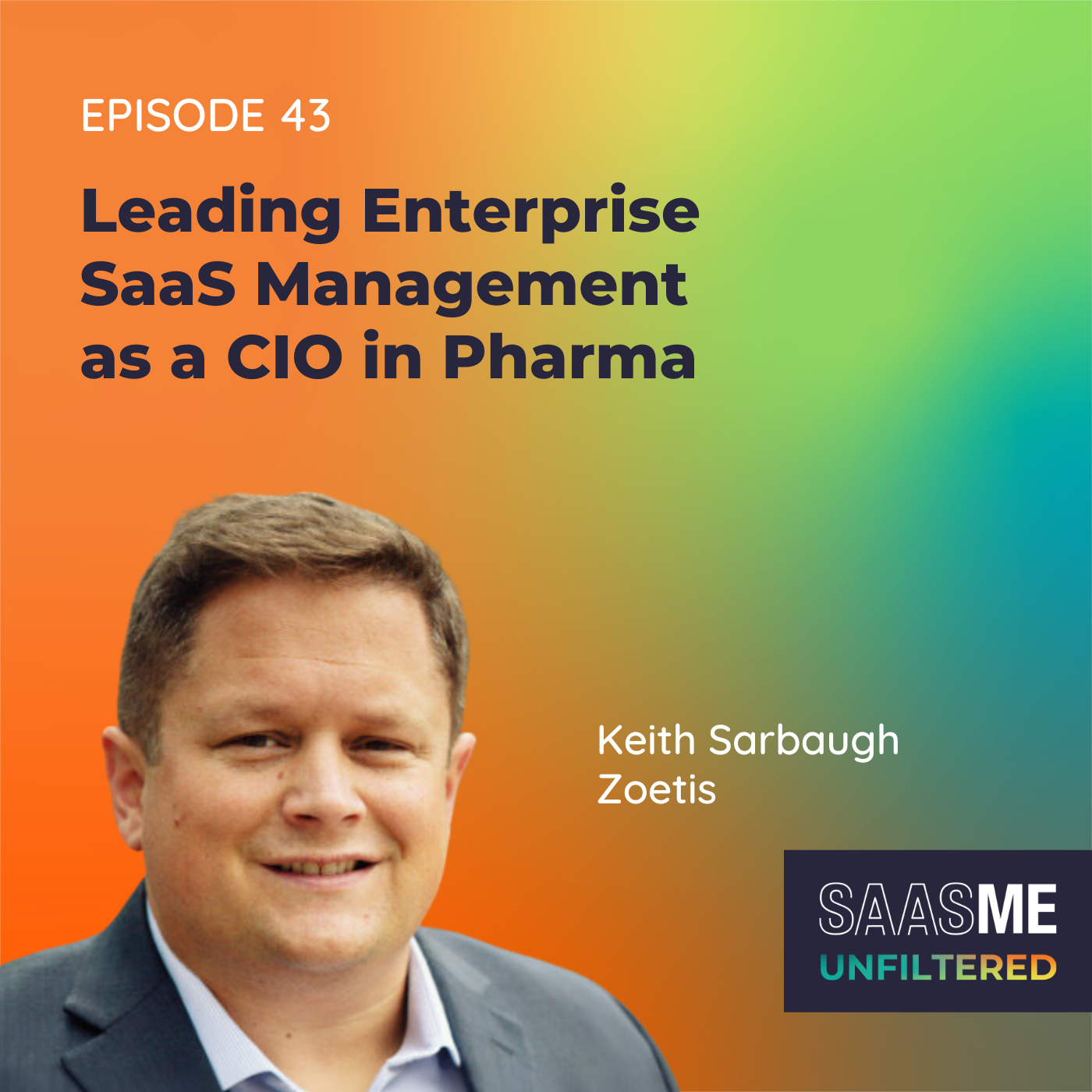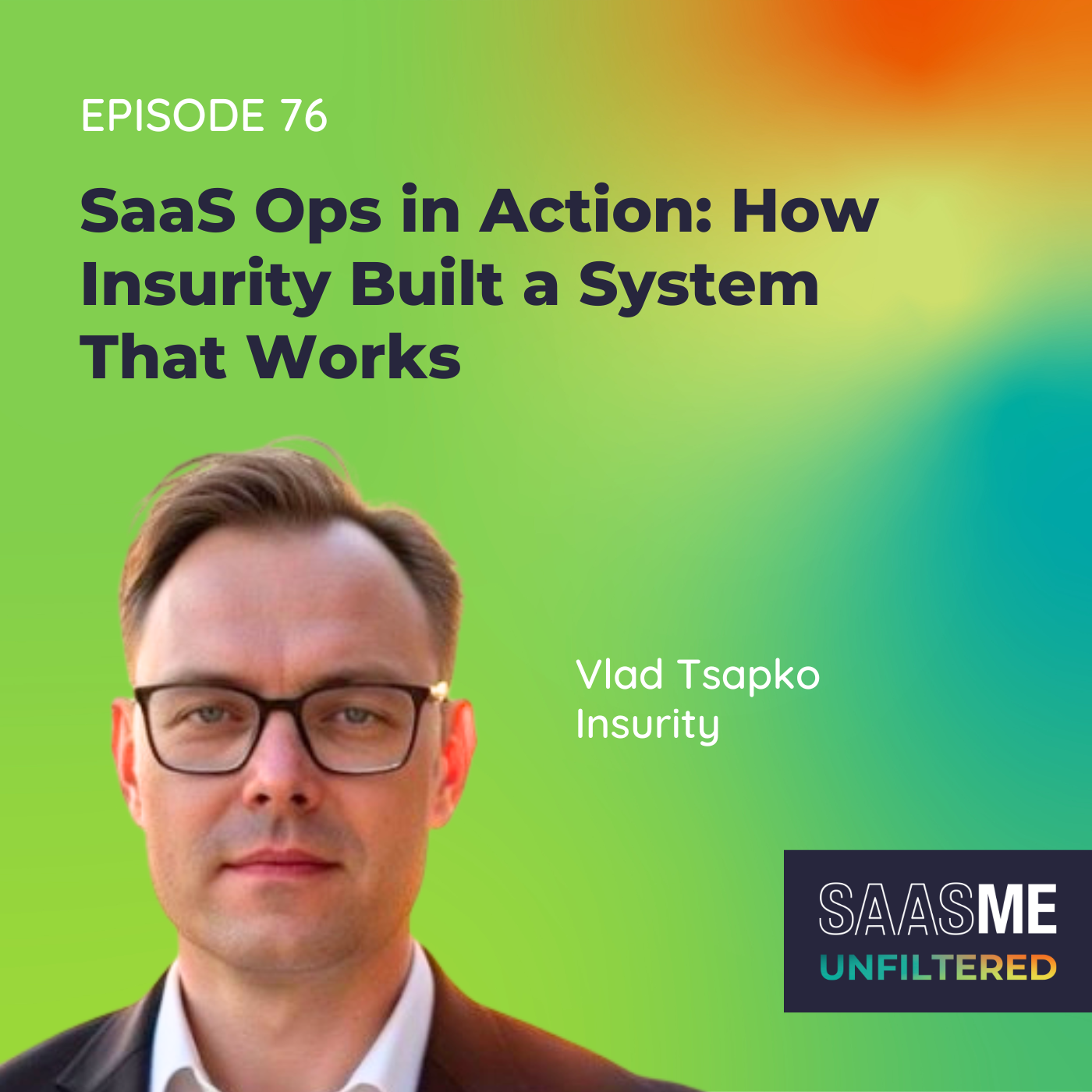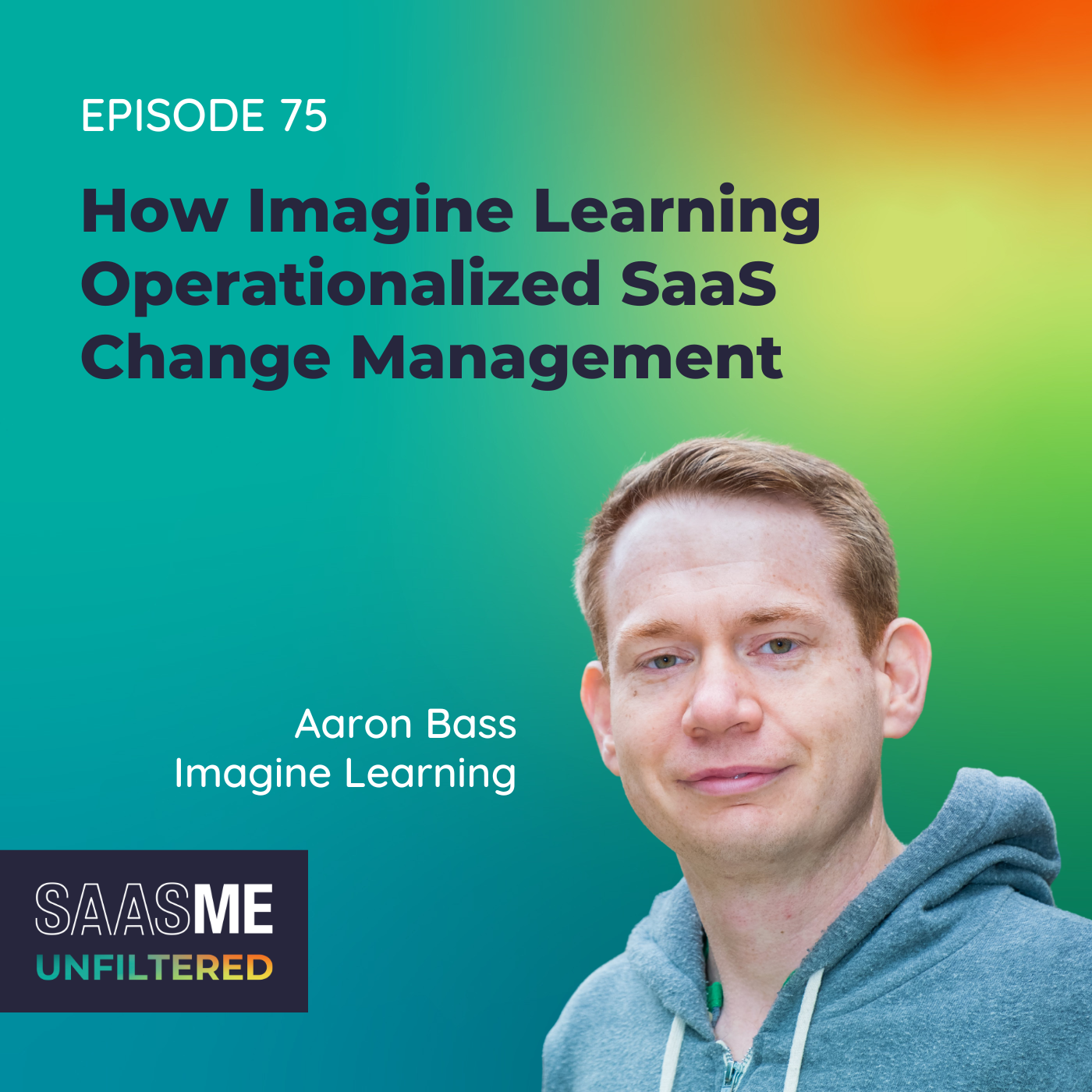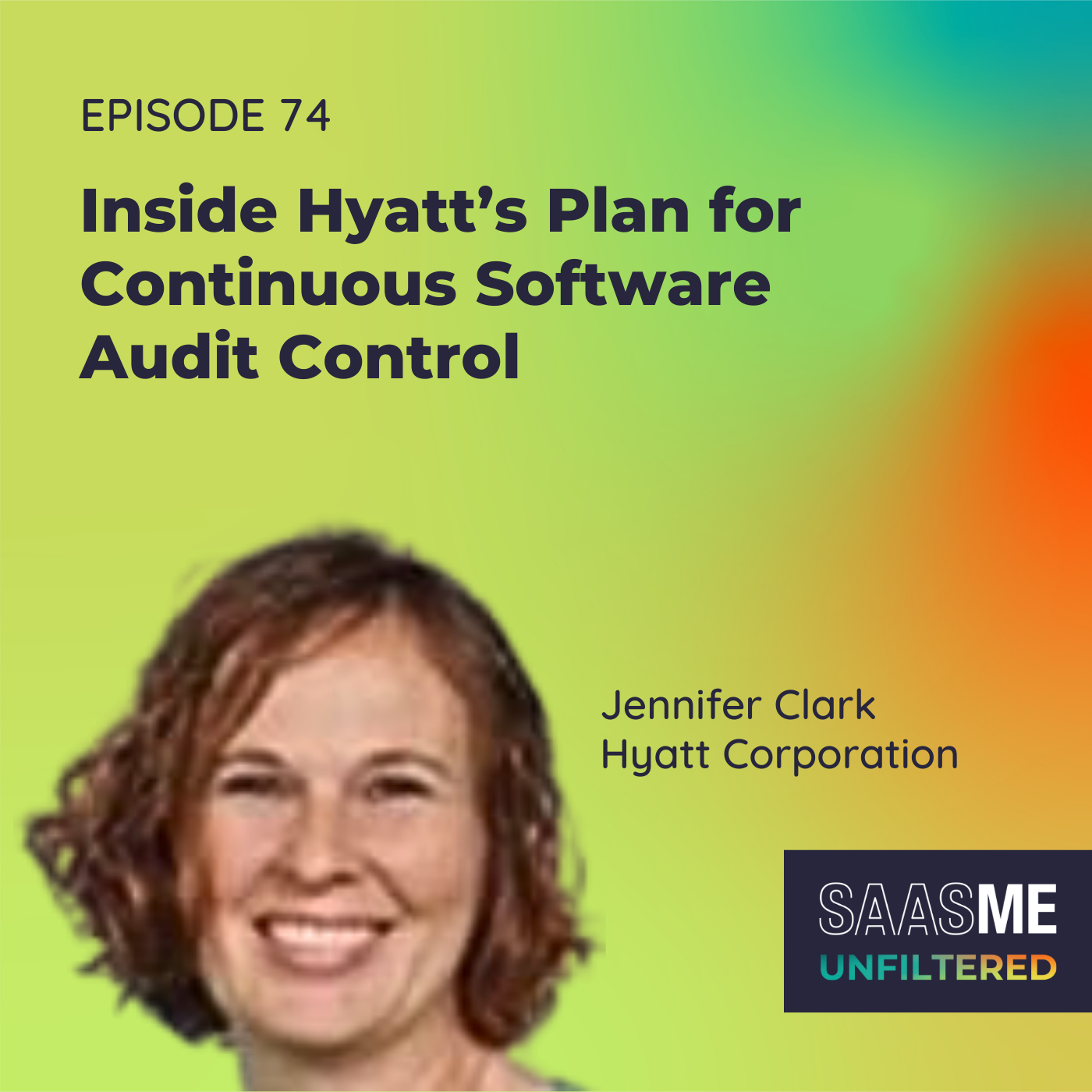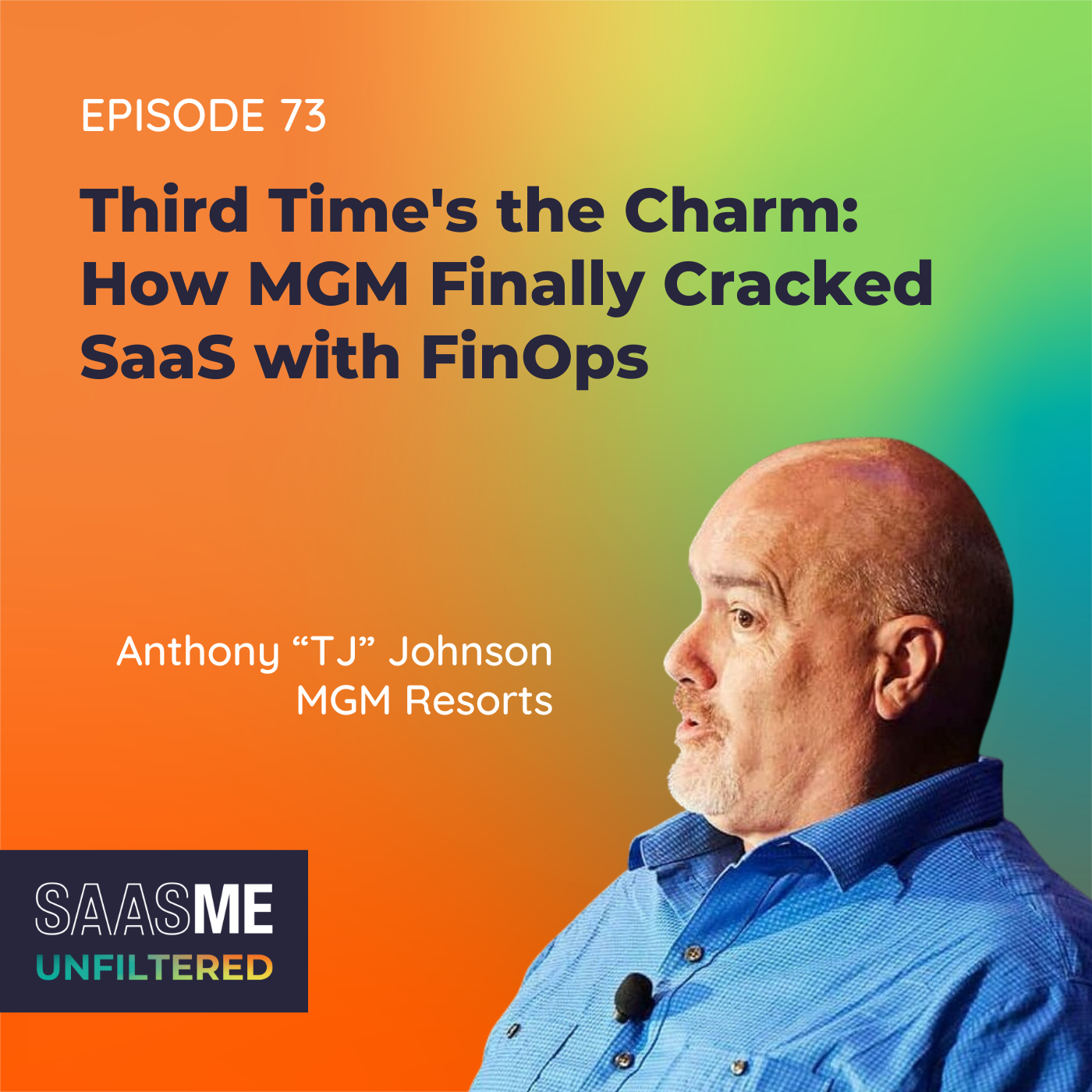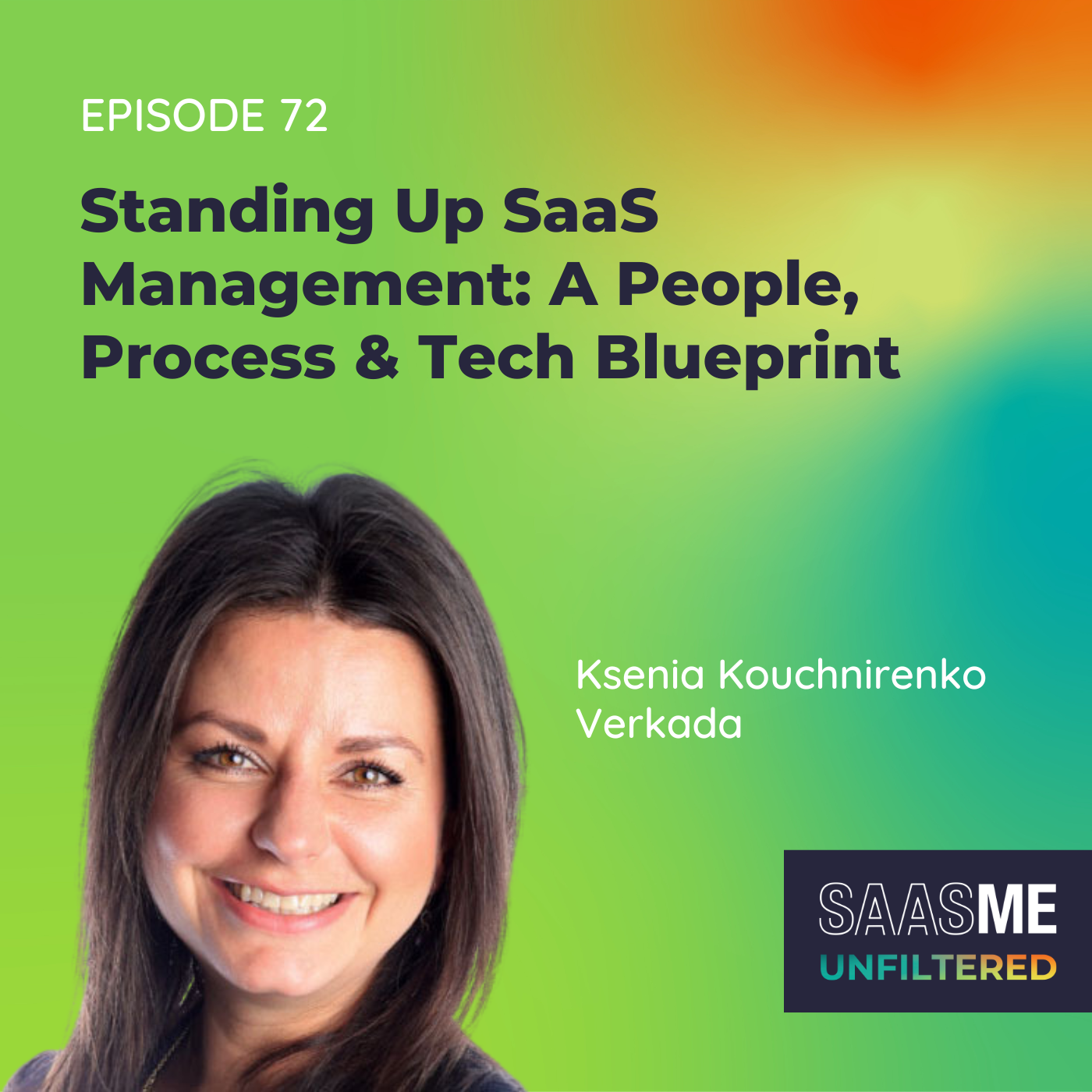Keith Sarbaugh: Leading Enterprise SaaS Management as a CIO in Pharma
- 0.5
- 1
- 1.25
- 1.5
- 1.75
- 2
Keith Sarbaugh: The important thing is to be able to use technology to innovate as a business. And to be able to show up in the market with products that have innovative technology in them and be able to run the company in innovative ways. And I think to be able to do that, you need to sort of manage, I'm not going to call it a necessary evil, but manage the cost as aggressively as you can so that you divert your resources to the things that make a difference. So my philosophy on that is always follow the money, go after the base, get the base as low as you can possibly stand to get it, and then pour your investment into the things that are going to differentiate you in the market.
Cory Wheeler: Hello, hello and welcome to SaaSMe Unfiltered: The SaaS Management Podcast. The show with give it to you straight real life advice from pros, knee- deep in SaaS every single day, SaaS management superheroes just like you. I'm very excited to have everyone joining us today. I'm Cory Wheeler, co- founder and chief customer officer at Zylo.
Meredith Albertson: And I'm Meredith Albertson, the chief marketing officer at Zylo.
Cory Wheeler: We have a wonderful guest that's joining us today, dare I say, a friend of mine here in the industry. This person spent his career in the pharmaceutical industry nearly 20 years at Eli Lilly and most recently an IT leader over in biopharm at Biogen. He is a Purdue University undergrad, go Boilers and a Duke University MBA. He's got very deep experience leading global IT teams within pharma and biotech industries, and across both domestic and global commercial and enterprise IT teams. He's very passionate about technology enabled businesses driving innovation and streamlining operations to improve the lives of patients worldwide. When he was formerly at Biogen, he received the Zylo 2022 SaaSME Enterprise Value Driver award. And interestingly enough, he also speaks a little bit of Italian on the side. Everybody, please welcome Keith Sarbaugh, the CIO at Zoetis. Hello Keith, how are you?
Keith Sarbaugh: Very good, thank you Cory. Thank you Meredith. I'm really excited to be here today. I told my kids this was coming up and their frame of reference on podcast is Joe Rogan, so I hope somebody gave Joe Rogan a heads- up that we're coming for them today on our podcast about SaaS management.
Cory Wheeler: I think we are. I think you can be Joe Rogan, I'll be my hero, Jason Bateman, and we'll make this work. I think it's great.
Keith Sarbaugh: Perfect.
Cory Wheeler: Well Keith, let's get into some of the content. I think you're going to share a lot of perspectives that our listeners will really value. The perspective of the CIO when it comes to SaaS, when it comes to OpEx management, when it comes to growing your entire business in a responsible way. And I know you've got some great perspective there, but your career has spanned biopharm and large enterprises and pharmaceutical and now animal health. When you get into the seat as the CIO, what do you focus on? What are your themes, your strategy, your philosophy around what you need to get done from day one when you're there?
Keith Sarbaugh: Okay, so that's a big question to start with.
Cory Wheeler: Very big.
Keith Sarbaugh: I think what I would say first and foremost, it's about getting the right people in the right chairs and having the right team around me. And one of the things I learned pretty early in my career is the importance of having people who are engaged, who are committed, who believe in the purpose of the company. Because I think when you have that, that sort of helps you overcome a lot of other obstacles. So I would say first and foremost, get the right people, get the right team, get the right kind of engagement and excitement. And if that happens then everything else sort of falls in line. I've always worked in technology in my career, not for tech companies themselves, but in industry as you said, mostly pharma, biotech, and now animal health. And the reason I do that, for me, it's about how do we apply technology to solve really important business problems? So a means to the end, not the end itself. And when I look back at my career and what I've learned along the way, it's get the right people, get in a place where we can make a difference with technology. And I would say that the final thing, you have to be good at the basics to be able to afford to do the stuff that drives innovation, change markets and makes a difference. So to the extent something like SaaS management or just OpEx management in general, the better you are at that, the more you can direct your resources to things that matter the most to the customers and the company you work for. So I guess that's the philosophy.
Meredith Albertson: Well, Keith, you mentioned OpEx management and we talked to CIOs,. Cost savings is often not the number one priority. But in our time working with you as an IT leader, that's something that you've always prioritized, saving the business money. Why is that and do you think that that is something that more CIOs should be making a top priority as they're planning out for the year?
Keith Sarbaugh: Again, Meredith, from my seat, I think the important thing is to be able to use technology to innovate as a business. And to be able to show up in the market with products that have innovative technology in them and be able to run the company in innovative ways. And I think to be able to do that, you need to sort of manage, I'm not going to call it a necessary evil, but manage the cost as aggressively as you can so that you can divert your resources to the things that make a difference. So my philosophy on that is always follow the money, go after the base, get the base as low as you can possibly stand to get it, and then pour your investments into the things that are going to differentiate you in the market. That's a little bit what we're trying to do here at Zoetis.
Cory Wheeler: Makes a lot of sense. I want to start to dig into this just a little bit and your experience, especially in the companies that you've been a part of, you've really driven large scale strategies in IT around legacy on- prem software. And now we're seeing this massive shift to the cloud clearly, and we're talking about SaaS management. And that goes through some companies that were founded quite a while ago. And you've built successful and effective SaaS management programs now inside those organizations. These mature companies are now finding that growing cloud and SaaS costs are becoming a challenge and they're starting to prioritize that internally. So what's your take on dispelling the myth, older companies are staying legacy and driving legacy types of strategies. What do you think holds these sorts of companies back from getting control of SaaS and OpEx and innovating quickly like you've chosen to do in a few different stops?
Keith Sarbaugh: That's a great question, Cory. So Lily, when I was there, we were 140, 150 year old company. I would argue the importance of managing SaaS and software subscriptions in a company like that is every bit as important as it is a digital native company. And I think back to some of those early days as software providers were starting to make the pivot to subscription services and SaaS services, it wasn't quite at the level of let's say urgency or importance as it is today, but it was an important piece of the puzzle. And I think about a lot of the principles of SaaS management apply to managing licenses for on- prem perpetual type licenses where you're dealing with maintenance agreements and those sorts of things. So whether you're digital native or not, I think it's an important discipline to have. And I would just say today almost every software company I can think of that maybe historically has grown up as an on- prem, perpetual cots, whatever is making the pivot to SaaS. So I think the timing is right in this market for a product that can help companies manage that type of spend. I'll say in the budgets that I've been responsible for today and in the past, software subscription, software maintenance is the number two or number three line item in the OpEx budget only behind maybe comp & ben. And it's just growing in importance. And all these companies that used to be perpetually licensed on-premise are now pushing everybody to subscription models. So the time is right to kind of up our game and figure out how to manage those relationships the right way.
Meredith Albertson: Keith, I once heard this comparison. It was a former job that I had that older, larger enterprise companies are like turning an aircraft carrier when it comes to change management. It's not fast and it's not easy, but you have always delivered really quick results, you stood up programs fast. I think at the last organization where we worked with you, you delivered a half million dollars in savings during implementation. What is your strategy? How are you thinking about this? What's your approach to getting results and ROI quickly?
Keith Sarbaugh: Yeah, it's an interesting question, Meredith. I think to me the key on that one is having a mix of how do I do things quickly and deliver value quickly, even if it's not the most valuable savings balanced with the bigger, harder to achieve, but more material savings. And both at previous employers, we launched our programs with that in mind, like let's get some points on the board quickly build some momentum, build some excitement. At the same time we're working towards those things that are a little harder to achieve, but maybe more material in the overall expense picture. So just kind of a mix.
Meredith Albertson: Yeah, it's kind of like prioritizing... You guys were looking at prioritizing that low hanging fruit and going after some quick wins. So in addition to that and standing up a program quickly while delivering value, I'm sure there are roadblocks along the way to doing that. Things that you maybe would want to avoid in the future. Now our listeners today, a lot of them are looking to stand up their programs or they're standing up a new program at a new company. What are some of the most common challenges you have encountered and how did you go about overcoming them?
Keith Sarbaugh: It's interesting when you lay out the case for disciplined expense management, whether it's software or otherwise, everybody's on board. And at a headline level, of course, we want to be responsibly managing our OpEx. What I found in software and SaaS management, the resistance is not resistance because we don't think it's the right thing to do. It's resistance because I have a thousand other priorities in my day job, managing this one renewal on top of doing my day job is just not where I want to spend my time. And in a company like ours, we're in the three to 400 renewals a year sort of ballpark. So a lot of these things, there's a tendency to just sort of push it through. It's part of the job, you just cycle through, you issue the PO and you move on. And I think making the case for, yeah, this may only be 50 or 60,000 for this one incident. Making the case for, there's 400 of these incidents that happen in a given year. You can make a big difference if you bring discipline to how you do it. And I think back maybe 10 or 15 years, we would look at the biggest three or four things we had renewing in a given year. And they were things like, of course Microsoft SaaS, not software as a service, but the analytics package, Oracle, those sort of big deal, big enterprise agreements. And if we were good, we could do a handful of those a year. The problem is now, yes, those are still in the environment, but there's hundreds of other titles that aren't at that same level. But we don't have the organization to scale and sort of bring high rigor, high discipline to every one of those renewals without some kind of support or process changes like you need in SaaS management.
Cory Wheeler: High rigor, high discipline, let me ask a follow-up to that. Your entire career in pharma, biotech and animal health, your year to year budgeting, your year to year actuals, managing OpEx as it occurs, a lot of it rides on the overall success of your pipeline. Or how well your drugs and development are doing as they go through approval and get to market. It's really highly regulated, so it leaves a lot of fluidity and uncertainty up in the air. So do you roll out a SaaS management strategy that meets that fluctuation or because of the known fluctuation, do you have to drive that diligence and that granular review around every renewal as a standard practice?
Keith Sarbaugh: In innovation-based businesses, like the ones I've had the privilege of being a part of, there are boom and bust cycles, right? The company goes the way of the pipeline, and when the pipeline delivers and we're able to bring innovation to the market, the investors reward us. And when we don't, boy do they punish us. So there's a lot of volatility that comes in being an innovation- based business, and I would say SaaS at a headline level, the whole concept of SaaS pay by the drink, it's flexible, it's not big capital outlay is fantastic. And at a headline seems perfectly aligned to a business that has volatility and revenue like that. The challenge has been it's not always pay by the drink and these guys are not always willing to go down as willing as they are to go up. So we've had to really step up our game and make sure we're 100% on top of those renewals, anything that's waste or not utilized, get rid of, lower the subscription, lower the maintenance, whatever the cost may be. So I guess that's a long way of saying, yes, there's volatility, staff should help with that, but left unmanaged, it just gets out of control.
Cory Wheeler: Let me follow up on that renewal conversation. You've got to buy, you've got to renew with that intelligence. Three to 400 applications means you've got at least two plus renewals every single business day internally at Zoetis. So there are really expensive topic, they're important. It's when you have to have your arms around to be able to operationalize that business process. So it seems straightforward, application is renewing, we renew it, but if you go a layer deeper, it's clearly a lot more complex. So why is it important for you to have a business process around renewals and what does that look like and who's all involved in that overall process internally?
Keith Sarbaugh: Yeah, the process to me, if you don't have a rigorous process, you can't scale and do it at the quantities that we're talking about. So to me, getting a rigid process, getting clear about who's responsible for what. So that when these renewals come up, first of all, you know they're coming, when they come up, nobody's surprised. We're able to look at them and not just say, " Well, this is the invoice the vendor sent us, so that's probably what we need to pay." It's peel it back a couple of layers and say, " Not even we're entitled to a hundred licenses, but what are we actually using of the entitlement?" And then get the quantity right. That's step one. And then step two is how do you get the commercials to match the quantity? And where we can, we always try to negotiate that to something that makes the payment in line with the value, not always the case, and we're not always able to achieve that. But I think if you can bring a rigorous process that scales to the volume of renewals that a company has to deal with and you're able to look at actual utilization and then the actual commercial terms, I think that's like 90% of it in my opinion.
Meredith Albertson: When it comes to renewals, I mean they're complex like you're alluding to and to stay ahead of them, to not be caught by surprise, you really need to be able to make intelligent and data- driven decisions. What does buying software SaaS, buying and renewing that with intelligence mean to you?
Keith Sarbaugh: Yeah, it's a lot about knowing the actual utilization. And while that seems like an easy thing to understand, it actually is not as you guys are well aware. We know entitlements, we know what we've bought before and we know a lot of times how many licenses we've assigned, but we really have no idea how it's being used. So coming to the table with data about what are we actually using and having some idea of the pricing we're being charged is in the ballpark for a deal of this magnitude, I think really gives us a credible place to start in those engagements with the vendors themselves. A part I didn't mention again, is just knowing what's coming. And again, as simple as that sounds, in a company like ours where we all have a million different priorities, staying on top of a schedule and knowing what renews when also is not an easy thing to do. So the intelligence to me is know what's coming, know what you're using and know what you're paying is a reasonable price. And again, that's 90 plus percent of it, I think.
Meredith Albertson: If you are not unlocking the full value of your SaaS, what are you doing? There is no denying it, SaaS is mission- critical to your company's growth and success. And as the number two operating expense for most organizations, it's your biggest opportunity to save money and drive efficiency. The time is now to do something about it. Join me and your fellow IT, SAM, finance and Procurement leaders at SaaSMe. SaaSMe is the industry's only dedicated SaaS management event where you can sharpen your skills, hear from your peers, and learn how to unlock value and responsible business growth through smarter SaaS management. Register today at saasme. com. That's S-A-A-S-M-E. com. We like to ask all of our guests about their oh shit moments, their moments that they realize that, " Wow, we have a challenge we need to solve here." When it comes to renewals and this data-driven approach that you've been talking about, did you have that moment when you realized that you didn't have the data you needed? And what did it look like to finally get that visibility?
Keith Sarbaugh: So interestingly enough, I think my moment came earlier in my career, we were preparing for a renewal with SaaS, so an analytics package. It was a very, very expensive renewal. It happened to be on- prem, but when we got into it and we started peeling the onion back, we realized we were buying licenses for products that we had never used, we're not using, we were paying maintenance on products that had never even been installed. And when you look at it on a big ticket item like that package was, and I remember sitting back thinking maintenance is a factor of the overall cost, this is really, really material. And this was one of hundreds and hundreds of subscriptions and renewals. So for me, I think that's the moment when I realized we've got to find something that scales and we've got to find a way to do this across the portfolio, not a handful of times each year.
Cory Wheeler: Yeah, so let me pick up on that. Let's talk about those big renewals, those big applications. You had SaaS, those other applications like a Salesforce, they're often very, very large. And a lot of these companies, as you go through the renewal process, they are ARR driven, looking to preserve revenue at all costs. Sometimes that's swapping out, sometimes that's alternate products, but really going down in annual commitment is a dinging on their business, so they're more like revenue companies. So what's that unique challenge in renewing those large applications and what's worked for you in getting those desired outcomes?
Keith Sarbaugh: Just a quick story. I'm not going to name the company, but in a previous role, we had a very deep relationship with an emerging tech company. We were using their products extensively. We had executive connections at every level of both companies. We were reference clients, we spoke at their annual conference. This was a big deal set of products. We were one of the early adopters on a low- code, no- code platform that they had. And as such, we had built I think 120 or so applications on this platform. We were maybe three years into the relationship and we did our first renewal and it was reasonable, not crazy out of bounds, but about what we had expected. The next renewal came around, and I remember having a feeling in my gut that this one might be different. Let's make sure we're really smart about the licensing we had that we weren't over licensed, over provisioned in anticipation of a more expensive renewal coming. So we had worked on this, I was proud, we saw it coming. We worked on it for something like six months. We moved 40% of these low- code, no- code apps off of the platform that were lower value so that we could rationalize the licensing. So we got down our licensing quantity wise, about 40% over where we had been. And I thought, " All right, so in case the price goes up a bit, we're going to be able to more than offset that with reduction in utilization." And much to my surprise and much to my disappointment, the renewal invoice came in at something like two and a half times what we had been paying even at the adjusted quantity. And I'll tell you, any bit of innocence or naivety on my part that existed at that moment in time was gone. It was clear to me it was not at all about partnership. It was not at all about we're in this together and it's a journey. And it was clear it was a revenue play and whether we were going to use a hundred percent of the units, 40% of the units, or probably even 140% of the units, they had a revenue target and that's what they wanted to renew at. It was tough. You asked about, oh shit moments. That was a little bit of an oh shit moment of a different type. And at that point, I think that's when my perspective changed of these things are tough. It's business, it's capitalism, expect this is going to be the way forward. And sadly, that seems to be the way forward with a lot of software companies. So I think coming to the table, not being surprised, coming to the table with options, like real options is the only thing I found that works. They have to understand that the business, the renewal is not a guarantee that we have options as a customer and we're serious about being able to employ those options. The other thing I'll say is looking at something like exchange rights. So maybe we reduced our utilization on the low- code, no- code stuff 40%, but being able to step back and say, " But there's other products in their catalog that might bring us some value, so let's surrender those and gain those because it's going to be the same price no matter what we do." So it's a little bit of, be prepared, have options, think about exchange rights as sort of a last resort. And I think those are the only techniques I know. I don't know from your seat, Corey, what else is there in those situations?
Cory Wheeler: Well, there's a lot of planning. There's a lot of internal alignment. There's a lot of digging in your heels and being confident in your approach. That goes a long way in being able to get the right licensing position that is needed. It's straight to your point, Keith software companies that get a surprise that their expectation on growth or ARR is going to change, that's when it becomes a very difficult conversation. So when it's communicated early, early and often, often in multi- year deals with a year left in the deal, " Hey, next year this is what is going to have to happen." When those companies forecast it, when they turn over AEs, when they come back to the table, there's a different expectation and that requires planning and data and a lot of proactivity. And that's very, very tough in the world of everybody has a lot of immediate activities that they've got to be running with every single day. But I've found that planning and data far ahead of time enables and greases the skids the rest of the way through.
Keith Sarbaugh: Your comment about AEs resonates with me that a couple of times I've had this happen, coincidentally there was a new AE brought in just before the renewal. And I've learned that's a big red flag that something unpleasant is about to happen.
Cory Wheeler: That's right, that's right.
Keith Sarbaugh: That's pretty funny.
Meredith Albertson: Corey and I would like to talk a little bit about licensed usage and waste with you today, but I think this is a really critical element of renewals. Utilization is such an important metric to understand product adoption, the value that it's bringing the business. It's also really a key metric to understanding the demand for the product waste and where are their options to trim back ultimately taking place at that renewal point. In our annual report, the SaaS management index that we put out every year, we found that 44% of licenses are going unused every month. And that is adding up to an average of about$ 17 million annually for a lot of companies. That's a lot to trim back and there's not really one quick fix option before the waste is gone. I think a good visual, it's kind of like weeding a garden, and if you don't keep up with the weeds, they're just going to keep growing back and taking over all the good vegetables. How do you approach staying on top of this?
Keith Sarbaugh: It's a good question. It goes a little bit back to what we talked about before about having a solid process or I would say a programmatic approach. So you know what's coming when a renewal comes forward. We don't rubber stamp anything. We sort of put a process in place where any renewal comes forward with some basic information around entitlement, utilization, unit costs, those sorts of things. Don't rubber stamp anything. If it's a$ 10,000 renewal, it doesn't make sense, stop it, let's think about it. Let's make sure we've got the right data. And then the other thing we've tried to do a couple of times is set targets and kind of make it a little bit of a game, if that makes sense.
Meredith Albertson: I like that.
Keith Sarbaugh: Get the entire organization bought into, " Hey, this is something that's going to serve us well." Make it a little bit competitive. We did a leaderboard concept at my last place. It was a lot of fun and it is a silly kind of way to get the organization bought into being able to do it a little differently.
Cory Wheeler: I'm into gamification of any of those processes everywhere I can. It makes it a lot more fun. Okay, so let me ask a follow- up question to that. We're talking about maximizing licensing, we're talking about sprawl of applications, and as you see sprawl happen, there's a direct correlation to a drop- off in utilization and usage and therefore value as well. So how do you think about maximizing adoption of your core products? And by that I mean looking at the current adoption, pruning that, allowing for the ease of use of people getting licenses back. And that's kind of the operational process, but also how does that map to value? Do you look at utilization and say, " We're using 68% of our licenses, that means we're not getting the value out of this application that should have outsized returns for us?" Maybe share your thoughts on that.
Keith Sarbaugh: Yeah, I think value is kind of a complicated thing to measure and how many units you're using maybe as an indicator, a little bit of a proxy, but it's not the answer. I would say to make sure we're getting value... And we've all worked in companies where you have three of every tool, right? Whether it's we got four different solutions for project management, we got 10 different solutions for data visualization. I really believe that doesn't happen because people wake up in the morning and say, " I want to go out and buy some new tool." A lot of times, especially with SaaS, it seems to happen because people aren't aware of what we already have in the enterprise. They don't know how to get access to it. So they take whatever route they need to go out, find something, buy it, put it on their corporate card or whatever. I think a key to that is how do you make sure your enterprise knows what do we already have in house? How do you easily get access to it and take as much friction as humanly possible out of that process. Make it as easy as possible for people to adopt the standards and the things that we want them to use. And on the flip side of that, make everything else as complicated as possible. So put a little bit of bureaucracy in place, if you will, so that it's not easy to do something that is not in the interest of the company. That's probably a really bad way to say that, but-
Cory Wheeler: It's hashtag truth.
Keith Sarbaugh: ...I think the key element there is make the easy path easy and people will do good things most times.
Cory Wheeler: Yes. And put diligence around the path that creates risk, both financially and security.
Keith Sarbaugh: Absolutely, yep.
Meredith Albertson: Well, Keith, we've got one final question before we jump into some rapid fire fun. To say this year has been uncertain when it comes to the economy, I think is an understatement, something that we're all thinking about on a daily basis. I'd love to know from you what you think the biggest opportunities for CIOs and their teams are for this year.
Keith Sarbaugh: Started with a tough one, we're ending with a tough one. Yeah. Who would've anticipated we're going to have a banking crisis and we're going to have the geopolitical tensions escalating and talk of another round of COVID. All these things that have happened this year and in years past, it's just been crazy and from my perspective unprecedented. I think when I sit in my seat today, it's about we're the world's leading animal health company. How am I doing everything I possibly can to make sure I'm supportive of the mission of the company. And how are we bringing innovation in both how we run the company and how our products show up on the market? My priority and my focus is 100% around that. To the extent I need to sort of manage the base and do other things responsibly, for sure, we're going to do that. But it's about delivering innovation. So my priorities are around innovating the products that show up in the market, making sure we're sitting there with our business colleagues, helping them see possibilities and helping try new technology. GenAI obviously is inaudible right now. We've got a lot of focus on that as a company.
Cory Wheeler: Okay. Now it's time to close out with our rapid fire segment. We're going to throw out a few thoughts and we'd love to get your one word or one sentence response back on those. Should be a fun close to the conversation. Are you ready, Keith?
Keith Sarbaugh: I think so.
Meredith Albertson: All right. Keith, you and I both live in North Carolina in the heart of the Atlantic Coast Conference. This is a very critical question depending on how you answer this, Duke, NC State or UNC?
Keith Sarbaugh: There's only one answer there, and it's Duke every day.
Meredith Albertson: Oh, I thought we were friends.
Cory Wheeler: Well, I was waiting for him to say my undergrad at Purdue, so I think we're all upset at this point. So Keith, you speak a little bit of Italian, so I know from our conversations that you've had the opportunity to visit as well. Where's your favorite place to visit in Italy?
Keith Sarbaugh: So I'm very biased. For three years, we actually lived in the Tuscany region. We lived in Florence, and I'll tell you again, with a lot of bias, I think it's one of the most beautiful places on the planet. So the Tuscany region, Tuscany region.
Cory Wheeler: Very much agree. Very much agree.
Meredith Albertson: Keith, I am a dog mom to three dogs. I have two cats. We are customers of Zoetis.
Keith Sarbaugh: Awesome.
Meredith Albertson: Zoetis, it's the world's leading animal healthcare company. Do you have any pets?
Keith Sarbaugh: Of course. Yeah, so I have a dog, his name's Deluca, he's Italian. He joined our family when we were living in Italy, but his breed, he's called a Portuguese water dog. He's sort of like a Labradoodle and he's-
Meredith Albertson: Oh, that's so cool.
Keith Sarbaugh: ... eight years old. But yeah, he'sa big part of our family.
Cory Wheeler: That's great. Living the brand.
Keith Sarbaugh: That's right.
Cory Wheeler: All right, last one, love or hate auto- renewals.
Keith Sarbaugh: Despise.
Cory Wheeler: That was a softball. We wanted to end this... We had two hard questions earlier in the segment, so that was the easiest one of the day. Keith, I can't tell you how fortunate we are at Zylo to have the experience working with you and your teams. I think the innovation you're driving in large enterprise companies, that is a comprehensive look at technology and innovation and how that's leveraged in your company is leading edge. On top of that, I think you're a hell of a nice guy as well. And it's been a pleasure to partner with you over the last several years. Thank you so much for joining us today on SaaSMe Unfiltered. We really appreciate it.
Keith Sarbaugh: Thank you guys.
Cory Wheeler: Did you enjoy the episode? Pass it along to your friends, subscribe to get notifications for the latest episode. Share your favorite takeaways, and join the conversation on social media using hashtag SaaSMe Unfiltered.
DESCRIPTION
With 20+ years of IT experience, Keith Sarbaugh has led SaaS management at some of the biggest names in pharma – Eli Lilly & Co, Biogen, and now Zoetis. What’s his secret for driving impact at scale with the business complexities of a pharmaceutical company? In this episode, Sarbaugh lets us in on his enterprise SaaS management strategy, indelible moments that shaped his career, and the biggest opportunities for IT teams in the year ahead.
Key Takeaways
- [00:00 - 02:29] Introducing Keith Sarbaugh, CIO at Zoetis
- [02:41 - 04:33] Getting the right people, team, and engagement
- [04:33 - 05:35] OpEx management, and why cost-savings is so important to Keith's mission
- [05:35 - 07:56] What holds companies back from getting control of SaaS and innovating quickly
- [07:56 - 09:12] Keith's strategy for delivering value and ROI quickly
- [09:13 - 11:09] Common challenges and overcoming them, navigating resistance and discipline
- [11:09 - 12:52] Boom and bust cycles with pipeline, being 100% on top of renewals
- [12:51 - 14:29] Renewing with intelligence and a business processes.
- [14:27 - 15:52] Intelligence means knowing utilization and entitlements
- [16:46 - 17:59] Keith's "oh shit moment" with SaaS licensing and spend
- [18:01 - 22:53] Partnerships vs revenue plays, a renewal experience that shifted Keith's perspective
- [22:55 - 24:46] Licensed usage and waste, taking a programmatic approach
- [24:53 - 27:03] Sprawl and finding value with their tools, making sure enterprise knows what is in house
- [27:03 - 28:26] Biggest opportunities for CIOs during a tumultuous economy and post-pandemic environment
- [28:26 - 30:41] Rapid fire
Today's Host

Ben Pippenger
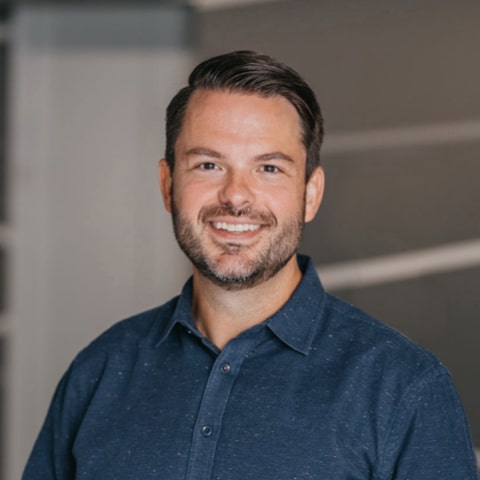
Cory Wheeler
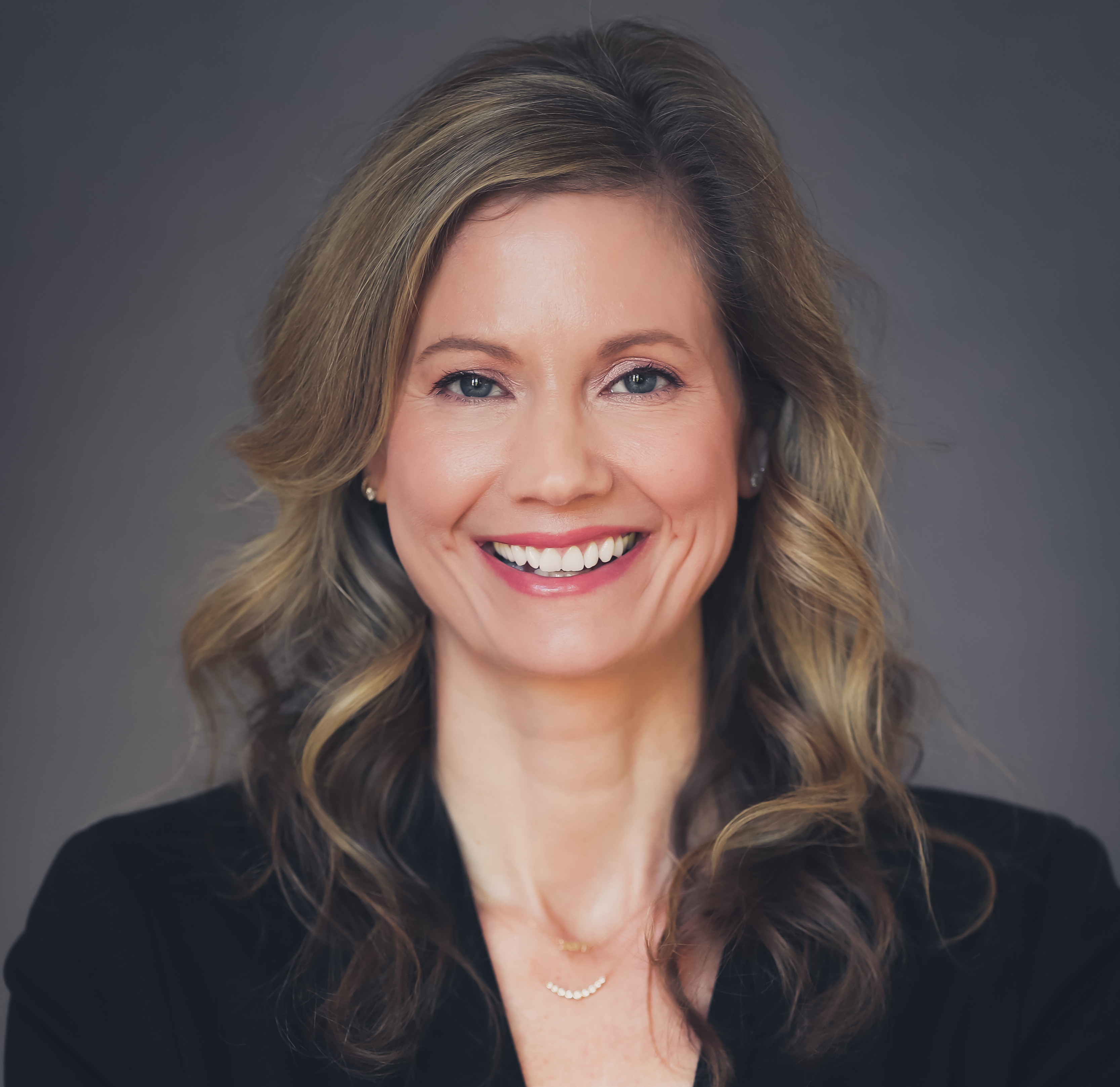
Meredith Albertson
Today's Guests
